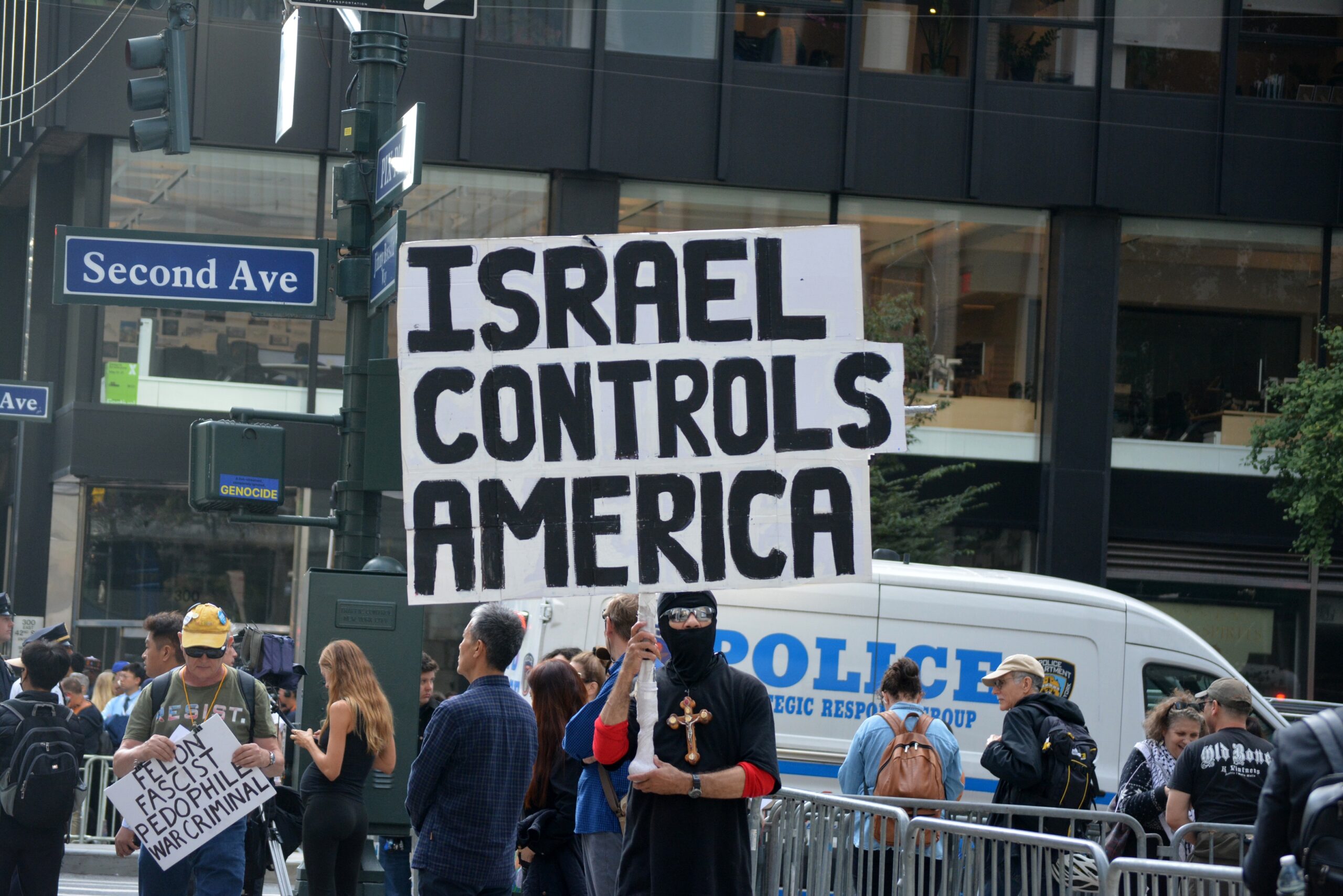The moment that many Jewish families feared might one day come has already arrived. It happened on a cold night in Manhattan when Park East Synagogue — a historic and respected Jewish institution — found itself surrounded by a hate mob. Demonstrators pounded drums and shouted “Death to the IDF,” “We don’t want no Zionists here,” and “Globalize the intifada.” One organizer went further and told the crowd, “We need to make them scared.”
The target of their rage was not a politician or a government agency. It was a synagogue. And the reason for the protest was that the synagogue was hosting Nefesh B’Nefesh, an organization that helps American Jews move to Israel.
That alone would have been disturbing enough. But the reaction from New York City’s mayor-elect made the moment even more jarring. According to an i24NEWS report, a spokesperson for Zohran Mamdani suggested that hosting Nefesh B’Nefesh was inappropriate because it promotes “activities in violation of international law” (i24NEWS, November 21, 2025). Mamdani said he discourages the language used at the protest, yet he stopped short of condemning the chants directly.
For many Jewish New Yorkers, this was the moment the ground shifted. If a synagogue hosting a Jewish immigration nonprofit can be accused of wrongdoing while mobs shout threats outside, then the city they trusted no longer feels like the one they grew up in.
🚨🚨🚨 HAPPENING NOW OUTSIDE PARK EAST SYNAGOGUE
— Rabbi Poupko (@RabbiPoupko) November 20, 2025
Antisemites have showed up outside Park East synagogue and are chanting for intifada.
The Rabbi of the synagogue is a holocaust survivor who remembers vividly the horrors of Kristallnacht.
Now, he gets to see the same human… pic.twitter.com/fFDtt8nOhV
And this synagogue incident was not a standalone event. It was the latest flashpoint in a steady rise in antisemitism that began long before that night — and surged after October 7.
According to The Washington Post, antisemitic harassment and intimidation across the United States spiked sharply in the days following the Hamas massacre, which was the deadliest attack on Jews since the Holocaust (Washington Post, June 3, 2025). The Anti-Defamation League recorded 9,354 antisemitic incidents in 2024, the highest ever recorded since the ADL began tracking these events in 1979 (Anti-Defamation League, “Audit of Antisemitic Incidents 2024”). The FBI’s data tells the same story. Jews account for about 2 percent of the U.S. population, yet they are the target of nearly 70 percent of all religiously motivated hate crimes (FBI Uniform Crime Reporting Program, “Hate Crime Statistics”).
The numbers are staggering, but the lived experiences are worse.
A New York mother described her son being shoved on a subway platform while others filmed instead of helping. A family in northern Virginia reported that their daughter was called a “baby killer” and told Jews “deserve to die,” and when they complained, the school expelled all three of their children (Parents allege antisemitic bullying, retaliation at Virginia private school, July 10, 2025).
And then there were the murders in Washington, D.C. Two Israeli embassy staff members, Yaron Lischinsky and Sarah Milgrim, were shot and killed outside a Jewish museum event after the attacker shouted “Free free Palestine” (Two Israeli embassy staff shot dead near Washington DC Jewish museum, May 22, 2025). It was a chilling reminder that antisemitic hatred in America is no longer limited to threats or vandalism. It has become deadly.
Reports show that Jewish Americans now experience more than twenty-five antisemitic incidents per day, about one every hour (New York Post, April 22, 2025). For many families, the fear is no longer hypothetical. It is part of daily life.

This is why aliyah — once a spiritual aspiration — has become a matter of physical safety. Parents who once dreamed of Israel for their children’s future now think of Israel for their children’s survival. Families are researching neighborhoods, contacting Israeli schools, brushing up on Hebrew, and quietly discussing whether this is the moment Ezekiel described. “I will take you from the nations and gather you into your own land.” For many, that prophecy feels less metaphorical and more like guidance.
Yet knowing they need to leave and being able to leave are two very different realities. Flights can cost thousands of dollars. Israeli bureaucracy can overwhelm even the most determined family. Housing, employment, school placement, and the sheer logistics of moving across the world often stop families in their tracks.
The Emergency Aliyah Campaign exists precisely for this moment. It helps families secure flights, navigate paperwork, arrange temporary housing, and take their first steps on Israeli soil. It transforms anxiety into action and fear into movement.
This is a defining moment in Jewish history. The synagogue protest made it clear. The statistics confirm it. The personal stories reveal its human cost. The situation is changing quickly, and families feel the walls closing in.
They stand at a crossroads. Behind them is rising hostility. Ahead of them is the one place where being Jewish is not a liability, but a homecoming.
They cannot make this journey alone. They need support. They need reassurance. They need partners who recognize the urgency.





